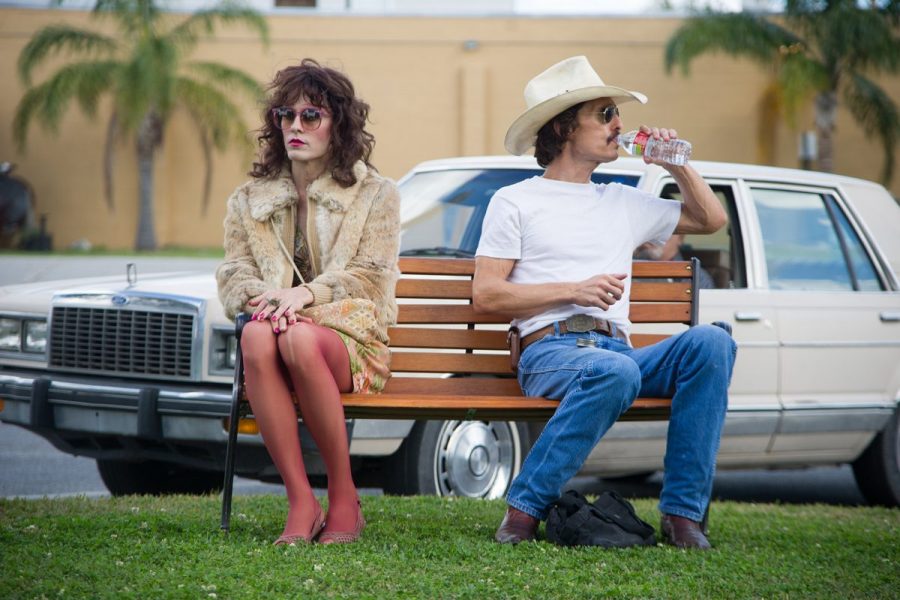Showing @ Filmhouse, Edinburgh until Thu 20 Mar @ times vary
Jean-Marc Vallée / USA / 2013 / 117 mins
There has been criticism of the liberties taken by Dallas Buyers Club‘s makers but the film is far more than a biopic of Ron Woodroof. It is a also a buddy film, an indictment of America’s health care system and a period piece which scrupulously captures the attitudes of a very specific time and place.
The Hollywood version of the story is, by now, well known. Matthew McConaughey portrays Woodroof as a real Texas good old boy: a racist, homophobic, whisky-swigging, coke-snorting, gun-toting, trailer-park-living hustler addicted to casual sex and rodeos (sometimes at the same time). He is initially sceptical at being diagnosed with what he sees as a gay man’s disease, but a bit of research soon convinces Woodroof that not only is the diagnosis correct but that there are drugs which may prolong his life. Ever the maverick, he bypasses medical trials to do his own experiments, eventually forming an uneasy alliance with the sweet transgender addict Rayon (Jared Leto). Together they import non-approved drugs to sell to HIV patients, undermining the local hospital and FDA trials and incurring the wrath of big pharma.
One could reasonably expect the story of two dying people to be depressing, but Dallas Buyers Club is remarkably uplifting and punctuated with a surprising amount of genuine humour. McConaughey’s portrayal of Woodroof remains warm, witty and sympathetic even in his most repugnant moments. Leto’s Rayon is a well judged invention who helps to fully demonstrate both the devastation of the disease and Woodroof’s emotional development. The dynamic between these unlikely friends is comedic but also deeply affecting.
Dallas Buyers Club brings the full paranoia of the AIDS epidemic to a new generation of audiences. Education and medical advances – some directly affected by buyers club members – mean the fear and stigma once associated with the illness are, for the most part, relics of the past. But Woodroof’s story is an essential reminder of lessons which are perhaps not yet fully learned.


Comments